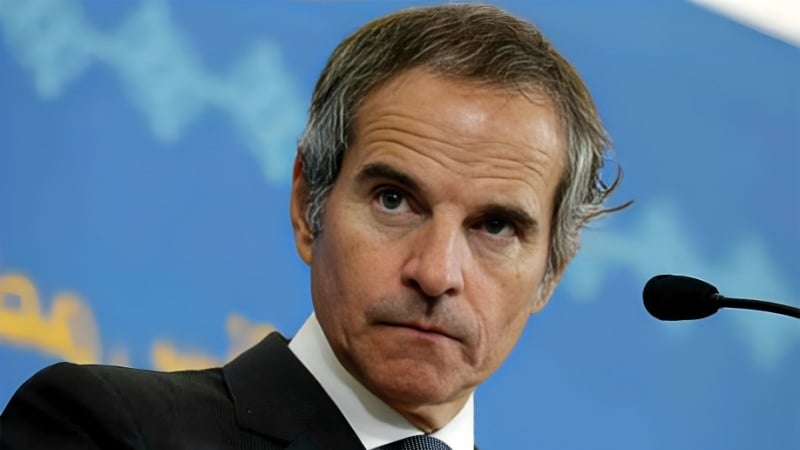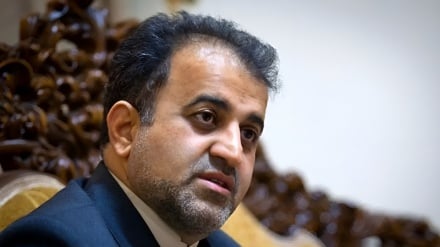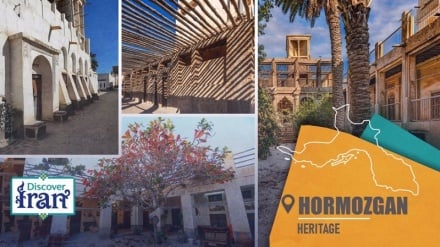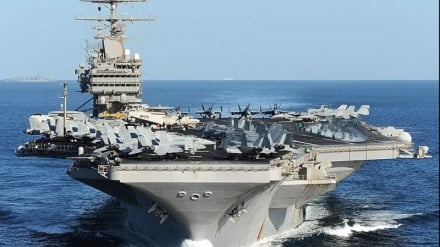Have Grossi's conducts led IAEA to crisis?
Pars Today- Having faced biased reports and silence of the International Atomic Energy Agency towards Israeli and American aggression on its nuclear facilities, the Islamic Republic of Iran disturbed the Western media game and created a serious challenge for Grossi.
The IAEA's official duty is to pursue its technical and surveillance commitment in the field of peaceful nuclear programs in a biased way. But, the developments of the recent weeks proved once again that the agency, under the management of Rafael Grossi, has turned into a political tool to increase pressure on Iran instead of moving in the course of scientific transparency. According to Pars Today, quoting from Mehr news agency, duplicitous behaviors, contradictory reports, selective reliance on invalid sources and, finally, allowing the Western media to set the ground for hostile actions by the US and the Zionist regime have created serious questions about Grossi's role and performance.
Iran has not stayed as a mere spectator in these circumstances and has given appropriate and smart responses with legal, diplomatic and technical tools.
Iran's legitimate, legal and deterring responses
After provocative reports and the questionable silence of the IAEA towards direct military attacks on the peaceful facilities in Fordow, Natanz and Isfahan, Iran's Majlis (Parliament), ratifying a strategic bill based on the principles of the international law, officially suspended the voluntary cooperation with the agency. This decision was made according to the paragraphs of article 36 of the JCPOA and article 19 of the NPT and is completely legitimate and defensible legally and technically. The mentioned articles make it clear that any member is entitled to stop its obligations in case of violation of obligations by the opposite side. Then, the role of Rafael Grossi, as the director general of the IAEA, and his biased stances against Iran caused discussions about prohibition of his entry in Iran. Grossi not only was not unbiased, but in several cases, he acted as a liaison who transferred the content of the reports to the Zionist and Western media and spying organizations even before those reports were officially released. This revealed the fact that Grossi had turned into a media agent within the scenario of the illegal pressure enforced by a handful of Western regimes against Iran. Prohibition of an agent's entry, who had played a direct role in escalation of security conditions for a member state, has had a record in the international diplomatic law and the Islamic Republic has applied this right correctly.
Finally, taking security conditions into consideration, evidence of information leakage and tense measures, Iran suspended the access of some of the inspectors. This decision is completely defensible on the basis of the content of safeguards and article 9 of the IAEA statute, especially the part pertaining to confirmation of the identity of inspectors (spies).
How did IAEA lose its credit in Iran?
- Releasing political reports instead of technical assessment
One of the main signs of the IAEA deviation from the technical course was the repeated publication of reports which were not based on technical and scientific criteria, and were rather fed by invalid and biased intelligence sources, particularly those of the Zionist regime. For instance, some of the reports claimed about the existence of uranium particles in places such as Marivan and Torquzabad. These hollow allegations had been made by the Zionist regime premier for the first time.
- Paving ground for military attack
The way the IAEA reports were written and Grossi's remarks in the weeks leading to the Israeli and American attacks on Iran's nuclear sites explicitly proved that the IAEA had turned into an arranger and precursor of military operation and a stooge for Washington and Tel Aviv.
- Duplicitous conduct and ignoring aggressive attacks on Iran
Another obvious evidence of the agency's politicized game was its absolute silence towards the blatant military aggression against Iran's peaceful nuclear facilities. After the drone and missile attacks on Fordow, Natanz and Isfahan, the IAEA was expected to strongly condemn the move as a flagrant violation of the fundamental principle of the agency's charter pertaining to prohibition of threatening the nuclear security of the member states. Grossi, however, not any didn't issue any statement in condemnation of the aggressive and illegal attack, but also uttered remarks such as "Iran's dangerous programs" and "need for immediate cooperation" to implicitly legitimize the aggressive moves of the Western sides and prove his servility to them. This is while, according to article 4/2 of the statute, the IAEA is obligated to take stance against potential or de facto threats against peaceful facilities of member states.
Is the game approaching its end?
Five years and seven months into Rafael Grossi's performance as the IAEA director general, the agency has lost its credit, legitimacy and neutrality. While the agency was supposed to act as a center for scientific and technical monitoring of peaceful nuclear programs of member states, it has turned into a political tool in the hand of the West and the Zionist regime.
undocumented reports, exposure of confidential information, flagrant bias towards military attacks and threatening remarks are a series of behaviors which have damaged this institution's credit and to save its face, it must choose the U-Turn and move in the right path of providing the ground for member states to enjoy peaceful nuclear know-how and technology rather than capitulating to its masters in Washington and Tel Aviv. Volatile legal coherence, weak treatment of blatant aggression on peaceful facilities and failure to keep expertise independence have lowered the agency's position into a mere "network of political pressure" against sovereign countries rather than a global and neutral source.
Rafael Grossi has approached the end of his profession with playing Iran card. Moreover, the lost trust, inaction against glaring aggression, turning into a spy and coordinator of the Western pressure have caused the IAEA, not just in Tehran but many places in the world, to be known as a pro-West and pro-Israel institution which has lost legitimacy and qualification to act as a global body.
The Islamic Republic of Iran has not only defended its national interests, but also warned the structure ruling the international system over the consequences of loss of trust in international bodies. The IAEA's obstinate persistence in this course will urge other member states, too, to revise their cooperation with it.
RM/ME



